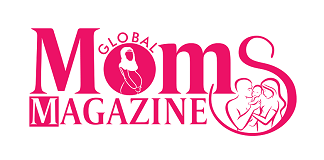In an era where digital solutions are revolutionizing healthcare delivery, electronic health records have emerged as a cornerstone technology transforming mental health care. Integrating digital tools into psychological practices isn’t just a technological upgrade – it’s fundamentally reshaping how therapists document, analyze, and deliver care to their clients. The global EHR market is expected to increase to $47 billion by 2027, up from $29 billion in 2020. This widespread adoption signals a significant shift in how mental health professionals approach patient documentation and care coordination.
Read more:
- What Causes Mental Health Issues in Moms and How to Recover?
- 9 Best Diet Tips to Improve your Health
- The Link Between Inflammation and Everyday Discomfort
Core Benefits of EHR Systems for Mental Health Providers
Electronic health records deliver substantial advantages that positively impact clinical outcomes, operational efficiency, and financial performance. These benefits extend beyond simple digitization of paper processes to fundamentally improve mental healthcare delivery.
Financial Benefits and Revenue Cycle Optimization
Strategic implementation of electronic health records often leads to improved reimbursement rates and fewer denied claims. By ensuring complete documentation that meets insurance requirements, practices can reduce claim rejections and rework.
Integrated billing features streamline the revenue cycle from initial scheduling through claim submission. Many systems include an icd-10 diagnosis codes list that ensures diagnostic coding accuracy, a critical factor in successful claims processing for mental health services.
Practice analytics tools provide visibility into financial performance metrics, helping identify areas for improvement or expansion.
While these overarching benefits paint a compelling picture, it’s the specific functionalities within modern EHR systems that truly transform day-to-day mental health care. Let’s examine the game-changing features that mental health professionals rely on to deliver exceptional care.
Enhanced Clinical Documentation and Decision Support
Mental health EHR systems provide structured templates specifically designed for psychological assessment documentation. These templates guide therapists through proper clinical documentation while ensuring all required elements are captured.
Decision support features alert providers to potential contraindications in medication prescribing or treatment approaches. By analyzing data from the client’s record, EHRs can highlight potential risks or suggest evidence-based interventions matching the client’s specific diagnosis.
Many systems now incorporate standardized assessment tools directly into the workflow, allowing therapists to track symptom progression over time. This quantitative tracking enables more objective measurement of treatment outcomes and progress.
Streamlined Workflow and Practice Efficiency
Mental health practices report significant time savings through automated documentation processes. Features like customizable templates and voice-to-text capabilities reduce documentation time and allow therapists to focus more attention on client interaction.
Scheduling and billing integration eliminates redundant data entry and reduces administrative overhead. Clients can schedule appointments online, receive automated reminders, and even complete intake paperwork before their first session.
The EHR impact on therapy extends to practice management through enhanced reporting capabilities that provide insights into practice patterns and performance metrics.
Improved Patient Safety and Medication Management
For psychiatrists and other prescribing providers, EHRs offer robust medication management tools. These systems check for potential drug interactions, track medication history, and alert to possible contraindications based on the client’s full health record.
Digital systems also enhance clinical safety by ensuring complete documentation of risk assessments and safety plans. When a client presents with suicidal ideation or other urgent concerns, structured templates guide appropriate risk documentation and intervention planning.
EHRs provide a reliable method to track follow-up for high-risk clients, ensuring they don’t fall through the cracks in the care system.
The Evolution of Electronic Health Records in Mental Healthcare
The journey from traditional paper charts to sophisticated digital solutions represents a transformative evolution in mental health documentation. This transition wasn’t immediate but developed through various phases as technology and healthcare regulations evolved together.
From Paper Charts to Digital Solutions: A Transformative Journey
The mental health field’s relationship with documentation has undergone remarkable changes over the decades. Traditional paper charts, once the standard, presented numerous challenges, including storage limitations, difficulty sharing information, and vulnerability to physical damage. The initial transition to basic digital systems in the early 2000s addressed some of these issues but still lacked the comprehensive features modern therapists require.
Modern electronic health records now offer sophisticated platforms specifically designed for behavioral health workflows. These systems understand the unique documentation needs of therapists, including detailed progress notes, treatment plans, and assessment tools tailored to mental health practice.
Current EHR Adoption Rates in Mental Health Practices
Mental health professionals have historically lagged behind other healthcare specialties in adopting digital record systems. This hesitation stemmed from concerns about the therapeutic relationship and whether technology might interfere with the human connection central to effective therapy.
However, recent years have seen accelerated adoption rates among therapists, counselors, and psychiatrists. Small practices, group clinics, and large institutions are increasingly recognizing the benefits of specialized mental health EHRs. Systems designed specifically for behavioral health offer templates and workflows that match the unique documentation requirements of therapy sessions.
Many practitioners now view EHR benefits for mental health as essential rather than optional, particularly as practices navigate complex billing requirements and insurance documentation needs.
Critical EHR Features Transforming Mental Health Care
Modern mental health technology solutions incorporate specialized features addressing the unique needs of psychological practice. These capabilities go beyond basic record-keeping to actively support therapeutic processes and practice growth.
AI-Assisted Documentation and Progress Notes
Artificial intelligence is revolutionizing how therapists document therapy sessions. Advanced natural language processing can analyze therapy conversations and generate structured progress notes following best practice guidelines.
AI assistants reduce documentation time while maintaining clinical quality. Some systems can identify key therapeutic themes and client statements, incorporating them directly into session documentation.
With AI handling routine documentation, therapists can maintain eye contact and engagement during sessions rather than focusing on note-taking. This improves the therapeutic alliance while still producing comprehensive clinical documentation.
Integration with Diagnostic Tools and Outcome Measures
Leading EHR platforms integrate standardized assessment instruments directly into clinical workflows. Therapists can administer measures like the PHQ-9 for depression or GAD-7 for anxiety, with results automatically scored and tracked over time.
These integrated assessments create visual progress charts that can be shared with clients to demonstrate treatment effectiveness. Many clients find these objective measures helpful in recognizing their improvement, even when subjective distress remains significant.
By tracking outcomes systematically, practices can demonstrate their effectiveness to insurance companies and referral sources.
Specialized Assessment Instruments and Outcome Measures
Electronic health records designed for mental health include specialized tools beyond general healthcare documentation. These might include risk assessment protocols, substance use screenings, or trauma-specific measures.
Treatment planning modules help therapists develop structured, measurable goals that satisfy both clinical and insurance documentation requirements. These plans can be easily updated as treatment progresses, maintaining a clear record of the therapeutic journey.
Custom assessment development allows practices to create their own measures specific to their treatment approach or client population.
Secure Patient Communication Portals
Client portals extend the therapeutic relationship beyond the session room. These secure platforms allow clients to message their therapist, complete homework assignments, or access educational resources recommended during sessions.
Secure document sharing facilitates the exchange of information without privacy risks. Clients can upload relevant records or complete assessment forms before appointments, maximizing the value of session time.
Many systems now include appointment scheduling and automated reminder features, reducing no-show rates and improving practice efficiency.
Beyond streamlining documentation, today’s sophisticated EHR systems unlock the potential of the vast clinical data they contain. This wealth of information is revolutionizing how providers understand, predict, and improve mental health outcomes.
Privacy, Security, and Ethical Considerations
Protecting sensitive mental health information requires robust security measures and thoughtful ethical guidelines. The digital transformation of mental healthcare must prioritize client privacy alongside innovation.
HIPAA Compliance and Mental Health Records
Mental health records receive special protections under HIPAA and state laws. Electronic health records designed for behavioral health must implement particularly robust security measures.
Technical safeguards for mental health data typically include encryption, access controls, and audit trails. These features ensure that sensitive information remains protected from unauthorized access.
Proper staff training on security protocols is essential for maintaining compliance. Even the most secure system can be compromised through improper user practices, making ongoing education critical.
Balancing Access with Confidentiality
The tension between accessibility and privacy requires thoughtful system design. Mental health providers need efficient access to relevant information without compromising confidentiality.
Role-based access controls limit information visibility based on clinical need. Administrative staff may see scheduling and billing information but not clinical notes, while clinical supervisors might have access to all client records.
Regular privacy audits ensure that access patterns remain appropriate and compliance standards are maintained.
Understanding these privacy considerations is essential, but how do practices implement EHR systems while addressing these concerns? A strategic approach to EHR adoption can make the difference between frustration and transformation.
FAQs
What are Electronic Health Records in Mental Health?
A mental health EHR is a medical software designed for practices focused on behavioral health, including counseling, psychiatry, and group practices. These systems provide specialized documentation templates, assessment tools, and security features tailored to the unique requirements of mental healthcare.
How have electronic health records impacted healthcare?
The accessibility and efficiency of EHRs have significantly improved patient care and outcomes. By improving access to patient information, streamlining documentation and record-keeping, and reducing medical errors and duplication of tests, EHRs have transformed the way healthcare is delivered.
How do electronic health records help coordinate care?
Facilitating seamless care coordination, EHRs consolidate data from multiple providers, ensuring that all care team members have real-time access to diagnoses, medications, and treatment plans. This comprehensive information sharing improves treatment consistency and reduces contradictory interventions.
Conclusion
The integration of electronic health records into mental health practices represents more than a technological upgrade—it’s a fundamental shift in how care is documented, delivered, and evaluated. As EHR systems continue to evolve with enhanced AI capabilities, improved interoperability, and more intuitive interfaces, their value to mental health providers will only increase.
The most successful implementations balance technological innovation with the human-centered approach that defines quality mental healthcare. When properly deployed, these systems don’t replace the therapeutic relationship but enhance it by reducing administrative burden and providing valuable clinical insights. For mental health professionals considering an EHR transition, the evidence points to significant benefits in clinical quality, operational efficiency, and practice growth.

